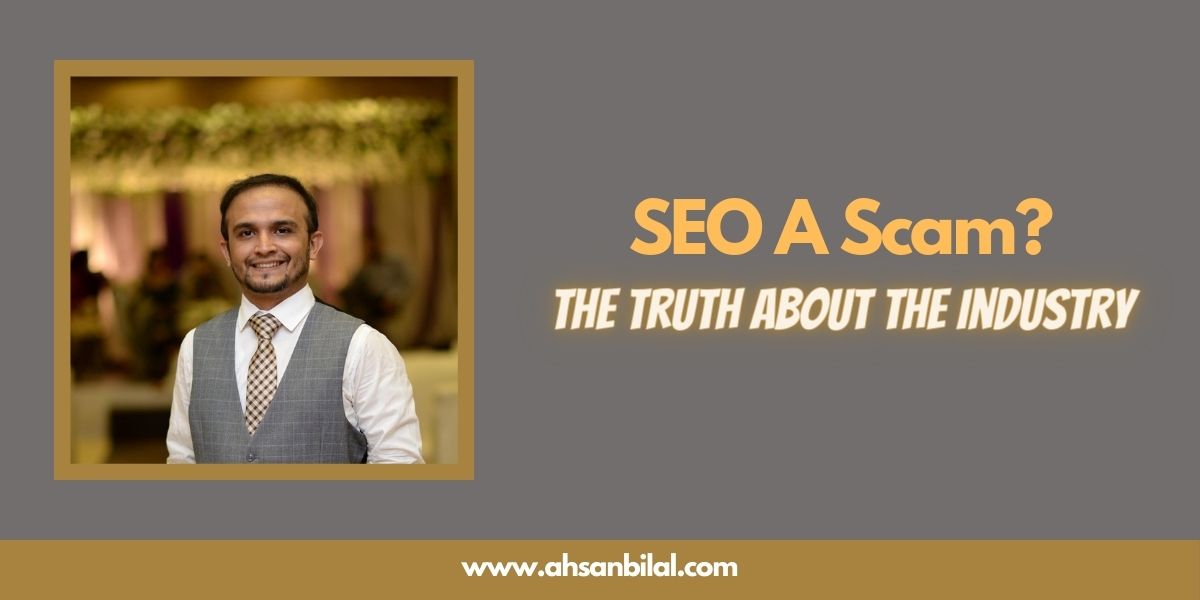SEO A Scam? The Truth About The Industry
In the digital landscape, where businesses are constantly vying for online visibility and consumers’ attention, Search Engine Optimization (SEO) has emerged as a pivotal tool for success. However, amidst its widespread adoption, skepticism has also arisen, with some questioning whether SEO is nothing more than a scam. In this article, we delve into the intricacies of the SEO industry to uncover the truth behind the skepticism and shed light on the genuine value it offers to businesses.
Understanding The Perception
First and foremost, it’s essential to address why some individuals perceive SEO as a scam. One primary reason is the prevalence of dubious practices and misleading claims by certain individuals or companies within the industry. These entities often promise unrealistic results, such as overnight rankings or guaranteed top positions on search engine results pages (SERPs), without delivering tangible outcomes.
Differentiating Scams From Legitimate Practices
While it’s true that there are unscrupulous actors in the SEO space, it’s crucial to recognize that not all SEO practitioners operate in this manner. Legitimate SEO professionals employ ethical and data-driven strategies to improve a website’s visibility in search engine results over time. These strategies include:
- Content Optimization: Creating high-quality, relevant, and valuable content that resonates with the target audience and aligns with their search intent.
- Keyword Research: Conducting thorough keyword research to identify relevant terms and phrases that potential customers are using to search for products or services.
- On-Page Optimization: Optimizing various on-page elements, such as title tags, Meta descriptions, and headers, to make them more search engine-friendly and improve overall relevancy.
- Link Building: Building authoritative and relevant backlinks from reputable websites to enhance a site’s authority and credibility in the eyes of search engines.
- Technical SEO: Addressing technical issues that may hinder a website’s crawlability, indexing, and overall performance, such as site speed optimization and mobile responsiveness.
The Value Of Ethical SEO
Contrary to the notion of SEO being a scam, ethical SEO practices can yield significant benefits for businesses in the long run. By focusing on providing value to users and adhering to search engine guidelines, businesses can establish a strong online presence, attract relevant organic traffic, and ultimately drive conversions and revenue.
Besides, Website design enhancement is certainly not a one-time try yet rather a continuous interaction that requires consistent observing, variation, and streamlining. As search engine algorithms evolve and user behaviors change, businesses must stay abreast of industry trends and adapt their SEO strategies accordingly to maintain competitiveness and relevance.
Conclusion
In conclusion, while skepticism surrounding the SEO industry is understandable due to the presence of scams and deceptive practices, it’s essential to distinguish between legitimate SEO strategies and unethical tactics. When implemented correctly, SEO can be a powerful tool for businesses to enhance their online visibility, reach their target audience, and achieve their marketing objectives. By partnering with reputable SEO professionals and focusing on ethical and data-driven practices, businesses can unlock the true potential of SEO and reap its many benefits.
Ultimately, SEO is not a scam; it’s a valuable investment in a business’s long-term success in the digital age.










